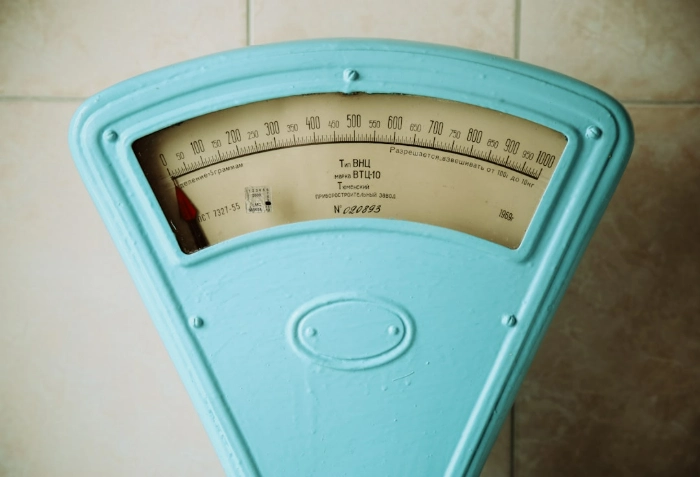Weight Gain After Menopause: Causes and Solutions

Let’s talk about something no one really warned me about: post-menopause weight gain.
Oh sure, you hear whispers about hot flashes, night sweats, and mood swings. But nobody sits you down and says, "Hey, by the way, your body might completely change shape overnight and the scale might start climbing no matter what you do."
This is exactly what happened to me. When I hit menopause, I was blindsided. It felt like I woke up one day and my body belonged to a stranger. I hadn’t changed my diet. I was still exercising regularly. Sometimes twice a day!! I took all the sugar and bread out of my diet. No more treats! And yet, the number on the scale kept creeping up... and up... and up.
My doctor told me to “move more and eat less.” But that’s what I had been doing for the last three years. That’s not it. It’s biology. It's hormones. What worked in my 30s doesn’t work in my 50s. And—good news—there are ways to fight back.
Let’s break it down.
Why Does Menopause Cause Weight Gain?
1. Hormonal Changes
Estrogen isn't just about reproduction—it affects how your body stores fat. When estrogen levels drop during menopause, your body gets really good at storing fat, especially around the belly. It’s like your metabolism throws up its hands and says, "We're hoarding now!"
2. Slowed Metabolism
As we age, our resting metabolism naturally slows down. That means you burn fewer calories at rest than you did in your 20s, 30s, or even early 40s. Without adjusting your eating habits, that slower burn can lead to gradual weight gain.
3. Muscle Loss
After about age 30, we start losing muscle mass naturally (about 3–5% per decade if we don’t do anything about it). Less muscle = slower metabolism. Menopause can accelerate this process, making it even harder to stay lean.
4. Insulin Resistance
Hormonal shifts during menopause can lead to increased insulin resistance. This means your body isn't as efficient at managing blood sugar levels, leading to more fat storage and cravings (especially for all the wrong things—hello, carbs and sweets).
5. Sleep Disruption
If you're tossing and turning at night thanks to night sweats, anxiety, or just general menopause madness, you’re not alone. Sleep deprivation messes with your hunger hormones, making you crave more food and store more fat.
What Can You Do About It?
I hope you’ve gotten better advice than “eat less and move more." You deserve better advice than that. Here’s what actually helped me—and might help you too:
1. Strength Training is Key
You need muscle. Period. Start lifting weights 2–4 times a week. You don’t need to become a bodybuilder (unless you want to!), but you do need to challenge your muscles. More muscle = higher metabolism = easier weight management. I promise, strength training changed my body more in my 50s than cardio ever did.
2. Try Intermittent Fasting
Fasting helped me not only stop gaining weight, but actually lose weight after menopause. Giving your body a break from constant eating helps regulate insulin, lowers inflammation, and can even reset hunger hormones.
(If you’re curious, check out my blog post on how I do 20:4 fasting!)
3. Prioritize Protein
Most women aren’t eating nearly enough protein, especially after menopause. Aim for 30–40 grams per meal. Protein helps preserve muscle mass, keeps you feeling full, and supports metabolism. It's a game changer.
4. Manage Stress
Chronic stress = high cortisol = stubborn belly fat. I know— easier said than done, but building in daily habits to lower your stress is critical. Walk outside, deep breathing, gentle stretching, prayer, meditation—whatever works for you.
5. Sleep Like It's Your Job
Prioritize sleep. Create a bedtime routine, keep your bedroom cool, wear light pajamas, skip alcohol before bed, consider magnesium glycinate supplements or magnesium lotion, and avoid screens before bedtime. Sleep isn’t a luxury—it’s a necessity for your metabolism and sanity.
6. Eat Real Food
Focus on whole foods. Vegetables, high-quality protein, healthy fats. Limit sugar, ultra-processed foods, and heavy starches if they’re triggering cravings or crashes. There are so many hidden toxic ingredients in processed and fast food— being mindful about ingredients makes a big difference.
Dear Reader, if you are struggling with weight gain after menopause, please don’t beat yourself up. Get curious. Experiment. Build muscle. Rest deeply. Nourish your body wisely. You are not broken. You are just adjusting to a new season—and there is hope.
I’m cheering you on, every step of the way.
To your health and happiness,
Jennifer Kaye
